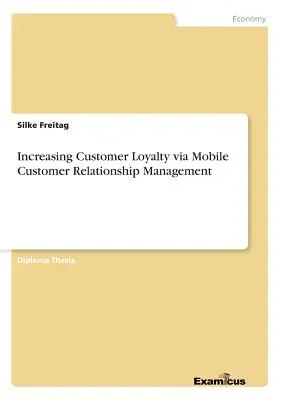Diploma Thesis from the year 2002 in the subject Business economics -
Customer Relationship Management, CRM, grade: 1, Wiesbaden University of
Applied Sciences, language: English, abstract: In times of
computerization and mass consumption, one vital element has long been
left behind. So far the customer rather tended to be treated as a trash
dump for all those mailings that completely missed his interest, while
he actually longed for companies to guess his needs, requirements and
wishes and send him personalized offers especially tailored to those.
With the beginning of the new century, technological advances and
innovations in the field of data mining and data management have already
made this dream come true for many customers. This new way of building
relationships is called Customer Relationship Management (CRM) and
comprises all aspects of interaction a company has with its customers.
"It's a business strategy that aims to understand, anticipate and manage
the need's of a company's current and potential customers."1 Along with
the fast proliferation of mobile devices, consumer's behavior has
changed considerably. Customers do no longer constraint their activities
to one communication channel, but take advantage of new technological
opportunities such as mobile commerce. In this fast-moving technological
environment creating and intensifying customer loyalty has become
indispensable for the business world. This change in consumers' behavior
gave way to the development of mobile CRM solutions enabling companies
to serve every customer individually at any time and anywhere and create
services and offers specifically corresponding to their needs. With
every mobile phone user being able to send and receive short messages,
wireless marketing offers great potential in the field of Customer
Relationship Management. Nevertheless, if the Short Message Service
(SMS) is applied to send offers and advertisements it should be an
end-to-end service2. Customers are to be given


